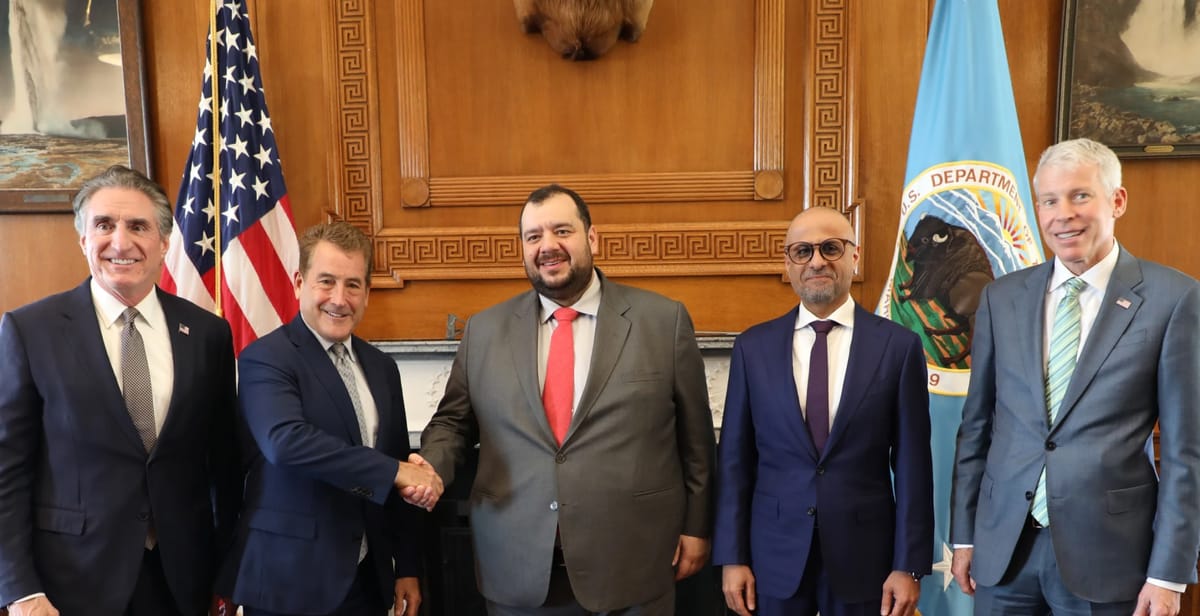Abu Dhabi wealth fund ADQ and private equity firm Energy Capital Partners are launching a $25 billion partnership to build power plants specifically for data centers—a move that signals both the extraordinary energy demands of AI and the UAE's strategic push to embed itself in the American tech ecosystem.
Key Points:
- The 50-50 partnership aims to invest over $25 billion, with an initial combined outlay of $5 billion.
- The focus is on greenfield development and new builds designed to serve data centers and hyperscale cloud operators.
- The venture is set to deploy 25 GW of dedicated power generation, mainly in the U.S.
- Strategic design plans include natural gas-fired assets, with potential integration of renewables and carbon capture technologies.
The 50-50 joint venture, announced Wednesday, aims to develop 25 gigawatts of new power generation capacity—primarily natural gas plants—focused almost exclusively on the U.S. market. The partnership comes at a pivotal moment when data center electricity consumption is projected to surge dramatically, potentially doubling or tripling by 2028 according to Department of Energy estimates.
The plan is to build dedicated power infrastructure, creating a parallel power system specifically for compute-intensive applications like AI, rather than drawing from existing electrical grids.
The timing of the announcement aligns with UAE National Security Adviser Sheikh Tahnoon bin Zayed Al Nahyan's visit to Washington, where he met with President Donald Trump to discuss strengthening ties in infrastructure and AI. Sheikh Tahnoon, who chairs ADQ and oversees a $1.5 trillion business empire including the region's leading AI firm G42, has been aggressively positioning Abu Dhabi as an essential partner in global technology development.
For Abu Dhabi, this move represents more than just a financial investment—it's a strategic maneuver to deepen its technological relationship with the United States at a time when access to advanced computing capabilities has become increasingly restricted. The UAE has faced challenges accessing cutting-edge chips under export controls established during the Biden administration, even as it attempts to position itself as a regional AI powerhouse.
The Trump administration appears receptive to this overture. At a recent tech summit, Vice President JD Vance praised the UAE as a "viable AI partner," noting their understanding that "if you want to lead in artificial intelligence, you've got to be leading in energy production."
Hamad Al Hammadi, ADQ's deputy group CEO, indicated in an interview that the $25 billion figure might just be the beginning. "We don't have an issue of increasing the capital if opportunities arise," he said, suggesting the partnership could deploy the full amount within five years before seeking additional funding.
The venture plans to focus primarily on natural gas plants, potentially incorporating carbon capture technology and selective renewable energy components. According to Al Hammadi, the partners already have a pipeline of potential projects amounting to about 10 gigawatts of generation capacity, with the first deals expected within a year.
The question is whether this approach—essentially creating a parallel power system for data centers—will prove more sustainable than upgrading existing grid infrastructure. Critics might argue that such siloed development could result in inefficiencies and inequities in energy access, effectively prioritizing computing power over broader public needs.
Regardless, this partnership underscores how the extraordinary demands of AI are reshaping not just technology investment but energy policy and international relations. In tying its technological ambitions to America's energy needs, Abu Dhabi has found a compelling way to deepen its strategic relationship with the United States while potentially securing greater access to the technologies driving the next economic revolution.

